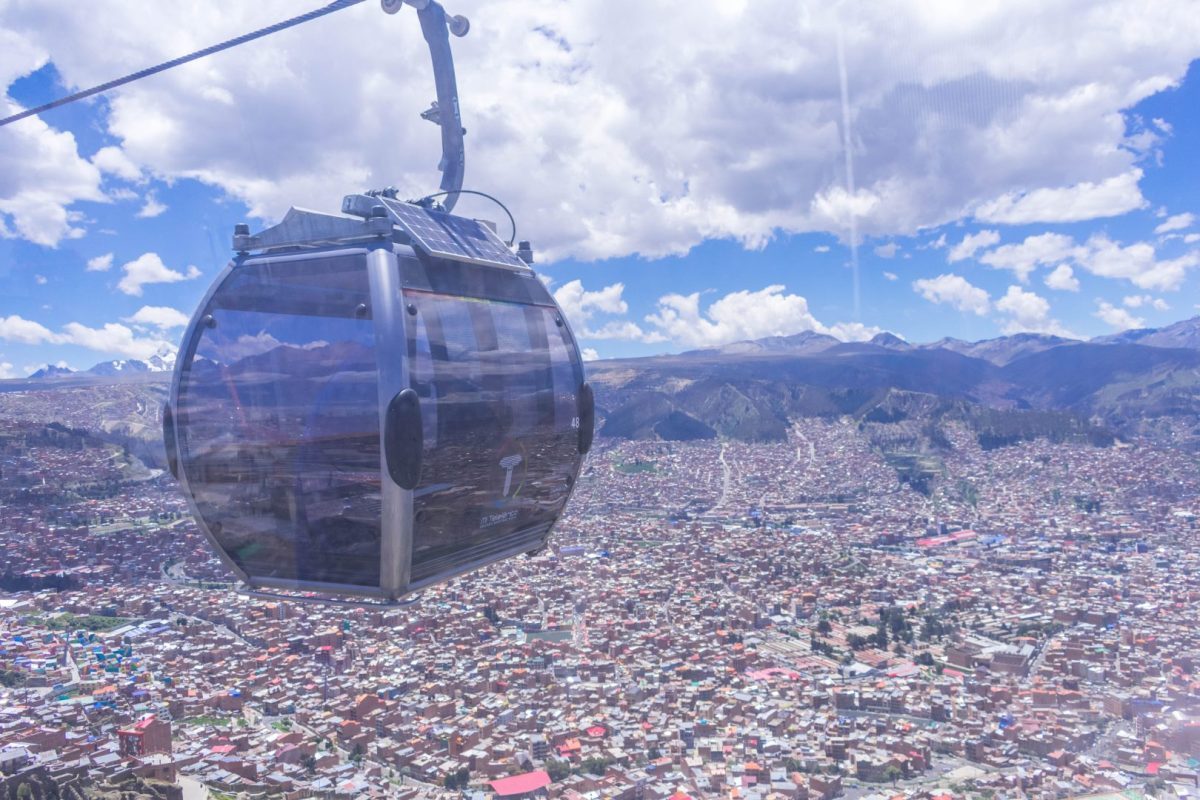Welcome to the land of vastness and grandeur – La Paz! La Paz, Bolivia’s de facto capital, is a metropolitan city known for its rich history, vibrant culture, and stunning landscapes. Nestled in between the towering Andes Mountains, La Paz offers a plethora of attractions and activities that will make your stay worthwhile. So whether you’re a history buff, an adventure seeker, or a food lover, La Paz has something to offer for everyone. In this post, we will take a closer look at some of the best attractions and things to do in this charming city. So fasten your seatbelts, put on your adventure hat, and get ready for a journey of a lifetime!
The 3 Best Tourist Attractions in La Paz
The 3 Best Tourist Attractions in La Paz
1. Uyuni Salt Flat Death Road
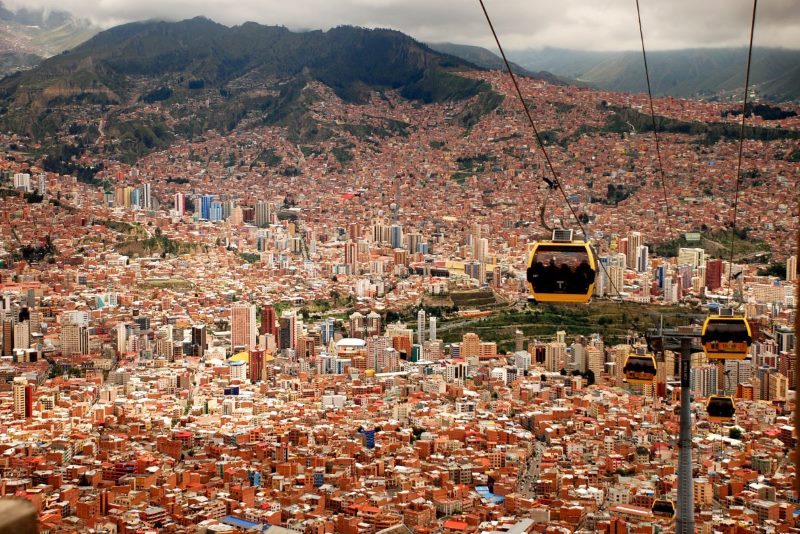
Experience the thrill of the Uyuni Salt Flat Death Road tour with our expert English speaking guides who have years of experience. You will be equipped with full suspension bikes, helmets, gloves, knee and elbow pads, jacket, and pants to ensure your safety. During the tour, you will visit Isla Incahuasi and Reserva Eduardo Avaroa, with entrance fees included in the package. You will also have personal expenses of Bs. 200. You have the option to head directly to the meeting point, Maria Auxiliadora Church, or request for pickup. The pickup points are customizable to your preference. Kindly confirm the start time with the local provider in advance. The tour finishes at Terminal de Buses La Paz on the 5th day. Join us for an unforgettable adventure on the Uyuni Salt Flat Death Road tour.
2. Cultural Pub Crawl Nightlife Tour
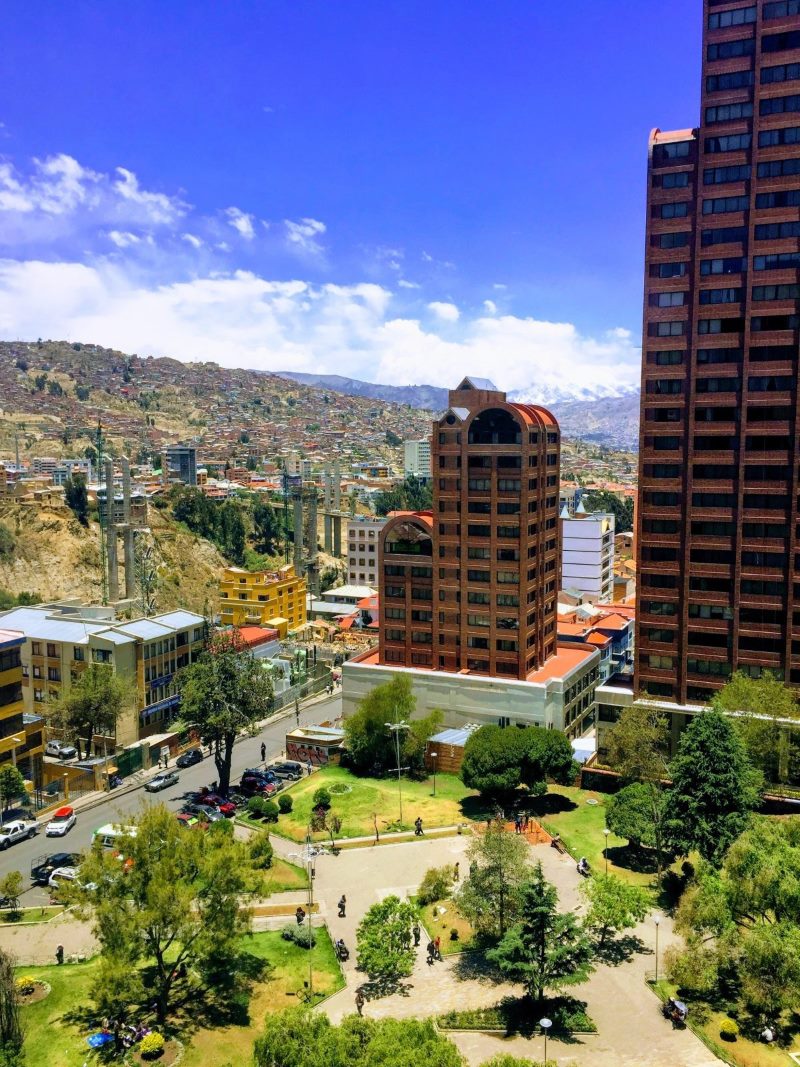
Experience the vibrant nightlife of La Paz with our Cultural Pub Crawl Nightlife Tour. This tour includes alcoholic beverages, so you can relax and enjoy the night with new friends. We’ll meet at Jaén 705, at the green cross, and visit several local pubs and bars in the city center.
Our tour ends at Av.6 de Agosto 2592, in the residential area of the city center. We will assist you in catching a taxi or calling an Uber. Please note that this tour is not wheelchair accessible and is not recommended for pregnant travelers. However, most travelers can participate, and the tour operates with a maximum of nine travelers.
Confirmation will be received within 48 hours of booking, subject to availability. You can cancel up to 24 hours in advance of the experience for a full refund. Please note that if you cancel less than 24 hours before the experience’s start time, or make changes less than 24 hours before the experience’s start time, the amount you paid will not be refunded.
Join the Cultural Pub Crawl Nightlife Tour and discover the best of La Paz’s nightlife.
3. Evening Foodie Tour
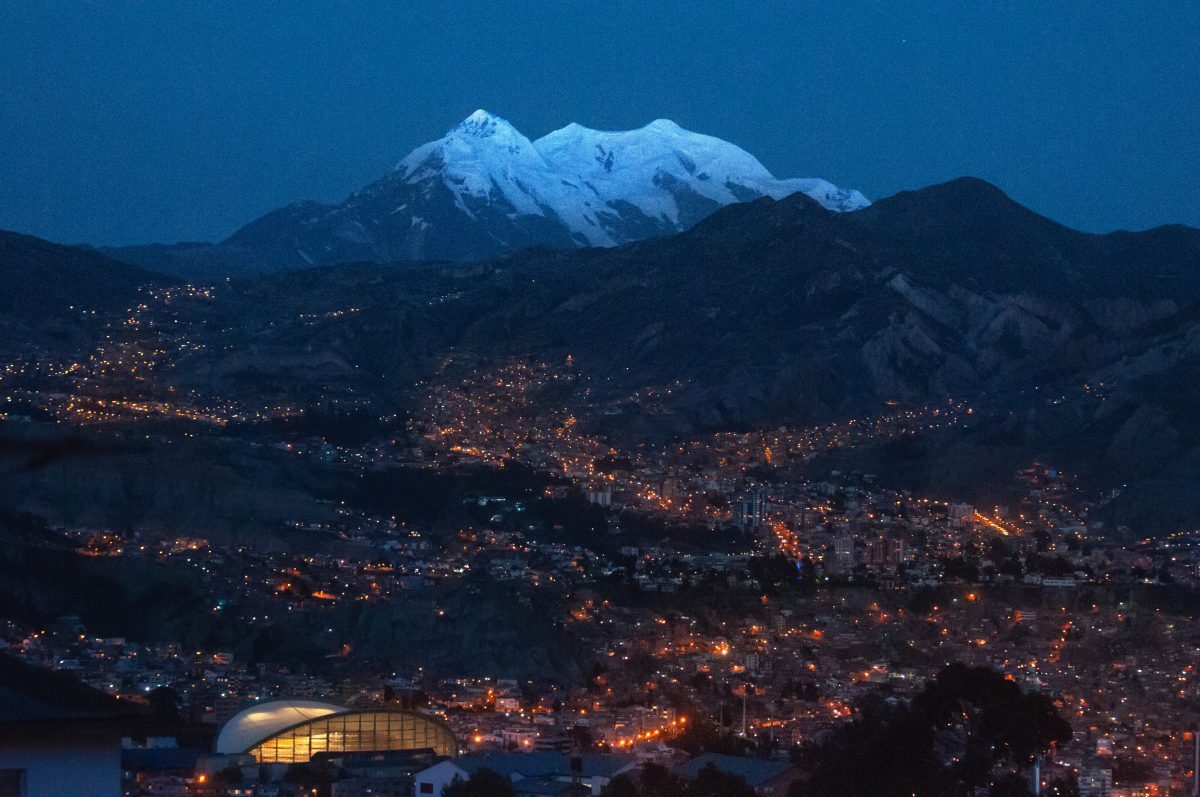
Bolivia may not be known for its food culture, but this Evening Foodie Tour is here to change that. Experience the warmth and heartiness of Bolivian cuisine as you taste six specialty dishes, visit local markets, and even try your hand at making a cocktail and sampling a local beer. You’ll learn about the stories behind the ingredients and the people who make them, all while passing by La Paz’s many unique markets, historical monuments, and sights. The tour starts at 18:00 PM, featuring tastes from the best local restaurants inspected for cleanliness and proper food handling. End your night with a drink and engaging conversation among new friends. Truly, you’ll leave the tour with a full stomach, mind, and soul.
The Ultimate Guide to La Paz: Frequently Asked Questions
La Paz, Bolivia’s administrative city, is a colorful, vibrant metropolis situated in the Andes valley surrounded by towering mountains. It boasts an intriguing blend of traditionalism and modernity, making it a popular tourist destination for people around the world. If you’re planning a trip to this cultural haven, you probably have some questions – and we have answers! Here are the most frequently asked questions about La Paz:1. What is the best time to visit La Paz?
The best time to visit La Paz is from May to October, during the dry season. During this time, the climate is mild and temperate, making it ideal for outdoor activities such as trekking and sightseeing. The rainy season runs from November to April, and the weather during this period can be erratic, with frequent downpours.2. How do I get to La Paz?
The most convenient way to get to La Paz is by flying into El Alto International Airport, which serves domestic and international flights. From the airport, you can take a taxi or airport shuttle to the city center. Alternatively, you can also travel to La Paz by bus from other major cities in Bolivia.3. How do I get around La Paz?
La Paz is a large city, and getting around can be a bit overwhelming for first-time visitors. One of the best ways to explore the city is by using the cable cars or teleféricos, which offer a unique way to see the city from above. You can also use the public buses, taxis, or hire a private car or driver to get around.4. What are some must-visit tourist attractions in La Paz?
La Paz is home to a wealth of attractions and landmarks, including:• The Witches’ Market:
A unique street market selling talismans, potions, and other mystical items used in traditional Andean practices.• Mercado Lanza:
A bustling local market selling fresh produce, meat, and seafood.• Plaza Murillo:
A historic public square flanked by key government buildings, including the Presidential Palace.• Valle de La Luna:
An otherworldly landscape of jutting rock formations created by centuries of natural erosion.• Mirador Killi Killi:
A scenic viewpoint with sweeping panoramic views of the city and surrounding mountains.5. Is La Paz safe to visit?
La Paz, like any big city, has its share of crime and safety concerns. However, most visitors to La Paz have a safe and enjoyable trip. Basic precautions such as not displaying valuables, avoiding unlit areas at night, and using official taxis can help minimize your risk.6. What is the food and drink scene like in La Paz?
La Paz is home to a wide range of dining options, from hole-in-the-wall street food vendors to upscale international restaurants. Traditional Bolivian dishes include salteñas (meat-filled pastries), anticuchos (grilled beef hearts), and quinoa soup. Bolivian wine is also gaining popularity and worth trying during your visit.7. What should I pack for a trip to La Paz?
La Paz is situated at high altitude, so it’s important to pack accordingly. Some essential items to include in your packing list are:• Warm clothing:
Bring layers, as the temperature can fluctuate throughout the day.• Sunscreen and sunglasses:
The high altitude and unfiltered sun can cause sunburn and eye damage.• Comfortable walking shoes:
La Paz has a lot of steep hills and uneven terrain, so comfortable footwear is a must.• Altitude sickness medication:
Many people experience altitude sickness when visiting La Paz, so it’s a good idea to talk to your doctor about preventative medication before you go.Conclusion
La Paz is an exciting destination that offers much to see and do. Whether you’re interested in exploring the city’s rich cultural heritage, trying traditional cuisine, or enjoying the great outdoors, La Paz has something for everyone. By following these tips and guidelines, you can ensure a safe, enjoyable, and unforgettable trip to this unique South American city.Welcome to La Paz, Bolivia’s highest capital city sitting 3,640 meters above sea level. This stunning city offers travelers a unique blend of culture and adventure, making it the perfect destination for anyone looking to explore South America. La Paz is known for its vibrant markets, world-class museums, delicious food, and awe-inspiring landscapes. In this post, we’ll guide you through the best attractions and things to do in La Paz, so you can make the most out of your stay and experience the magic of this unforgettable city. Get ready for a journey that will leave you with memories that will last a lifetime.
The 3 Best Tourist Attractions in La Paz
The 3 Best Tourist Attractions in La Paz
1. Uyuni Salt Flat Death Road
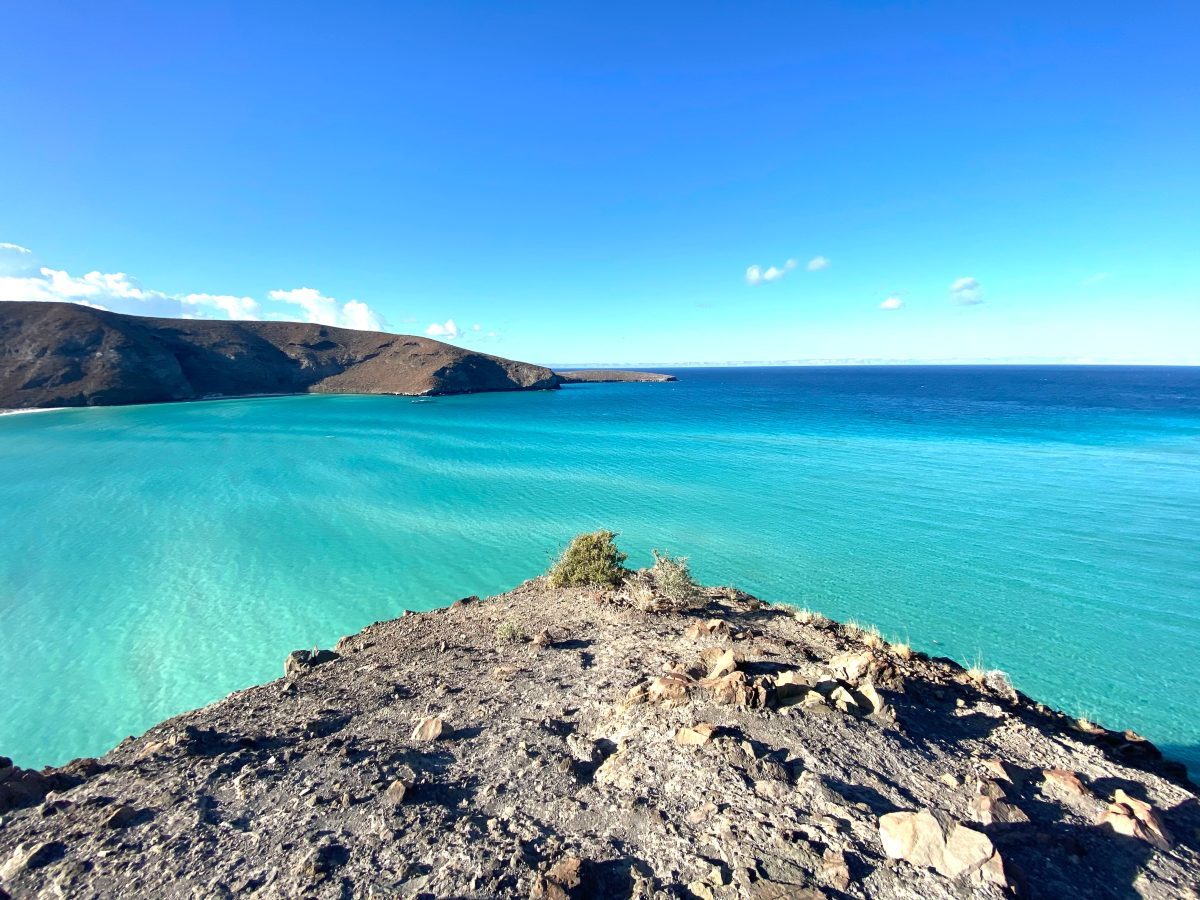
Discover the breathtaking natural wonders of Bolivia on the Uyuni Salt Flat Death Road tour. This full-day adventure includes a thrilling bike ride along the famous Death Road, with a full suspension bike and all necessary safety gear provided. Your English-speaking guide has years of experience and will lead you on this exhilarating journey.
In addition to the Death Road, the tour also includes visits to Isla Incahuasi and Reserva Eduardo Avaroa. Entrance fees to these attractions are included in the tour price.
You can either meet the group directly at Maria Auxiliadora Church or request a pickup from your accommodation. The tour starts between 7:30 and 8:00 am, and the exact time will be confirmed with the local provider beforehand.
The tour ends on the fifth day at Terminal de Buses La Paz. Personal expenses are not included in the tour price, but a budget of 200 Bs. is recommended.
Join us on this unforgettable journey through Bolivia’s stunning landscapes and experience the adventure of a lifetime!
2. Cultural Pub Crawl Nightlife Tour

Join this amazing cultural pub crawl night tour and experience the lively nightlife of La Paz. The tour includes alcoholic beverages to enjoy while discovering the city’s best bars and pubs.
The meeting point is at Jaén 705, at the green cross (cruz verde), and the tour ends at Av.6 de Agosto 2592 in the residential area of the city center. The tour operators will help you catch a taxi or call an uber for your convenience.
During this tour, you can expect to have a great time and meet new people, while learning about the city’s local customs and culture.
Please note that confirmation of booking is subject to availability and should be received within 48 hours of booking. The tour is not recommended for pregnant travelers, and it’s not wheelchair accessible. However, most travelers can participate. The tour/activity will have a maximum of 9 travelers.
The tour is operated by an experienced local guide, Edson Benito Acarapi Vera, and it abides by a cancellation policy. You can cancel up to 24 hours in advance of the experience for a full refund. If you cancel less than 24 hours before the experience’s start time or make any changes, the amount you paid will not be refunded. Please note that cut-off times apply.
Join the cultural pub crawl night tour and explore La Paz’s vibrant nightlife scene!
3. Evening Foodie Tour
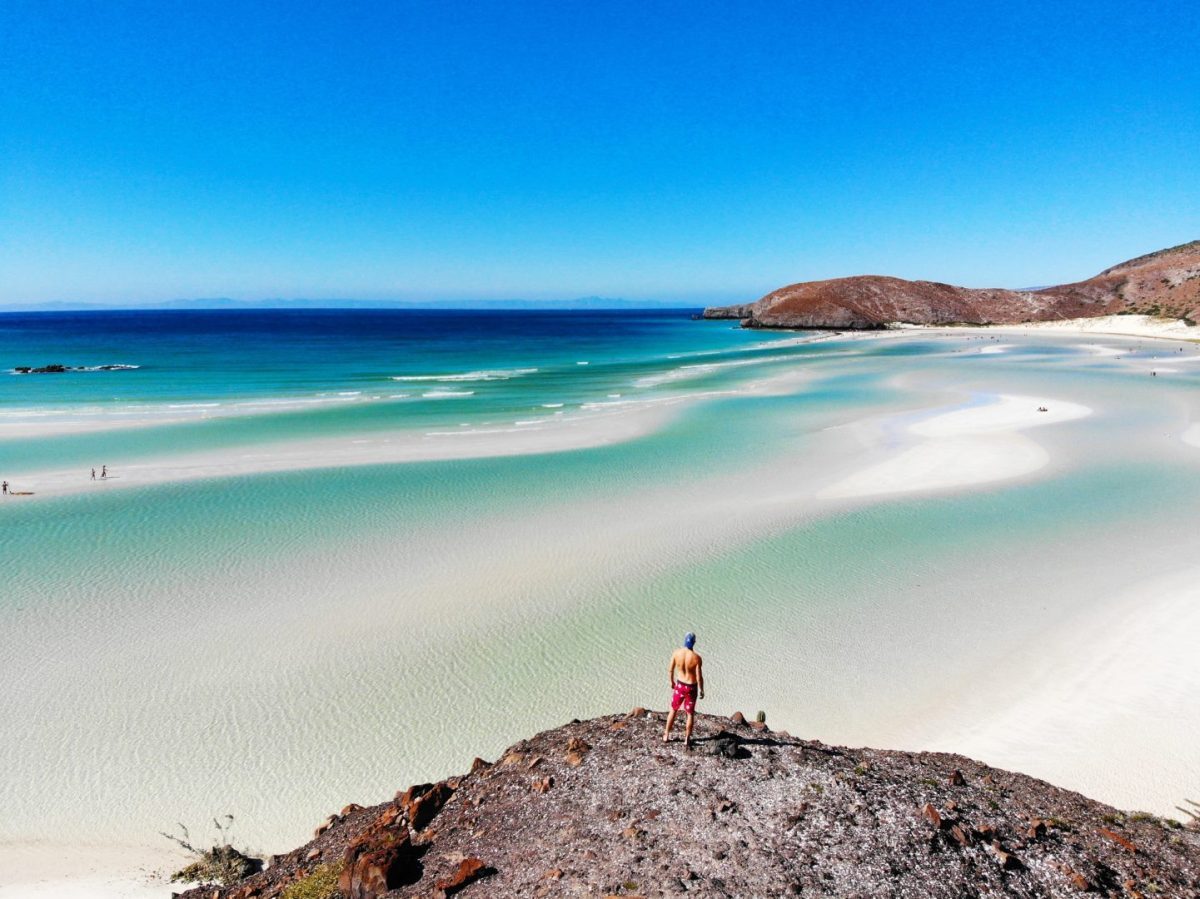
Bolivia has a rich culinary culture that is waiting to be discovered. The Evening Foodie Tour is the perfect way to explore the best local delicacies and experience the warmth of the Bolivian people. Starting at 6 PM, this tour takes you on an adventure that is sure to leave you with a full stomach, a happy mind, and a heart full of memories.
During the tour, you will visit the best local restaurants and taste six specialty dishes. You will also have the opportunity to visit a local market and sample some of its delicious offerings. As you enjoy your food, you will learn about the Bolivian food culture and the people behind its ingredients.
The tour doesn’t just focus on food. You will also have the chance to make your own cocktail and try a local beer. As you make your way through La Paz’s many unique markets, historical monuments, and sights, you will be entertained with fun stories and anecdotes about the city’s history and culture.
The Evening Foodie Tour is suitable for everyone who loves food and wants to discover the best that Bolivia has to offer. It is also perfect for couples, families, and groups of friends who want to experience the warmth and hospitality of the Bolivian people. Don’t miss out on this unique and delicious experience!
Frequently Asked Questions about La Paz
La Paz is the administrative and political capital of Bolivia, located in the Andes Mountains at an altitude of 3660 meters above sea level. It’s a city with a unique blend of indigenous cultures and Spanish colonial heritage. It is also home to some of the world’s most breathtaking landscapes, including the infamous Death Road and the majestic Lake Titicaca. Many tourists are curious about this fascinating city, and often have a lot of questions. Here are some of the most frequently asked questions about La Paz:1. How do I get to La Paz?
The easiest way to get to La Paz is by flying. El Alto International Airport is located just outside the city and is well connected to many destinations in the Americas. Alternatively, you can take a bus from nearby cities, such as Cochabamba or Santa Cruz.2. Do I need a visa to visit La Paz?
Citizens of most countries, including the US and the UK, do not need a visa to enter Bolivia as tourists. However, it’s always best to check with your local embassy before booking your trip.3. Is it safe to travel in La Paz?
La Paz is generally considered safe for tourists. However, like any big city, it’s always best to take precautions. Avoid carrying valuables with you and watch out for pickpockets in crowded areas. Also, be careful when hiking alone or taking a taxi late at night.4. What is the currency used in La Paz?
The official currency of Bolivia is the Boliviano. US dollars are widely accepted, especially in tourist areas. However, it’s always best to have some Bolivianos on hand for local purchases.5. What is the weather like in La Paz?
La Paz has a moderate and cool climate due to its high altitude. The temperature rarely exceeds 20 degrees Celsius during the day and can drop to below freezing at night. The rainy season runs from November to April.6. What are the must-see attractions in La Paz?
There are many must-see attractions in La Paz, such as:- Plaza Murillo – the central square of the city, surrounded by colonial buildings and the government palace– San Francisco Church – a beautiful 16th-century church with a rich history
– Witches’ Market – a colorful street market that sells a variety of traditional Andean goods, including herbs, potions, and charms
– Valle de la Luna – a bizarre rock formation located just outside the city
– Cholita wrestling – a unique and entertaining wrestling experience that showcases the traditional attire of indigenous Bolivian women.
7. What should I eat in La Paz?
Bolivian cuisine is diverse and flavorful. Some of the must-try dishes in La Paz include:- Salteñas – a savory pastry filled with meat, potatoes, peas, and a spicy sauce– Chairo – a hearty soup made with beef, vegetables, and chuño (dried potatoes)
– Silpancho – a dish made of flattened beef, rice, and potatoes, topped with a fried egg
– Api con Pastel – a warm corn drink served with a sweet pastry.
8. Can I take a day trip from La Paz?
Yes, there are many day trips available from La Paz. Some of the most popular ones include:- Death Road – a thrilling mountain bike ride down the world’s most dangerous road– Lake Titicaca – a stunning lake located on the border between Bolivia and Peru
– Tiwanaku – an ancient archaeological site with a rich history and fascinating ruins
– Huayna Potosi – a popular peak for mountain climbing and trekking.In conclusion, La Paz is a unique and fascinating city with a lot to offer. If you’re planning to visit, make sure to take note of these frequently asked questions, and don’t forget to explore all that this incredible city has to offer.
Welcome to La Paz, the vibrant city that sits high in the Andes Mountains of Bolivia. Despite its altitude, this city is bustling with culture, history, and adventure. With stunning views, charming colonial architecture, and delicious food, there are endless things to do and see in La Paz. In this post, we’ll take you on a journey through the best attractions and activities that this city has to offer. Whether you’re an adventurous traveler seeking thrilling experiences or a history buff on the hunt for fascinating stories, La Paz has something for everyone. So pack your bags, put on your walking shoes, and get ready to explore!
The 3 Best Tourist Attractions in La Paz
The 3 Best Tourist Attractions in La Paz
1. Cultural Pub Crawl Nightlife Tour
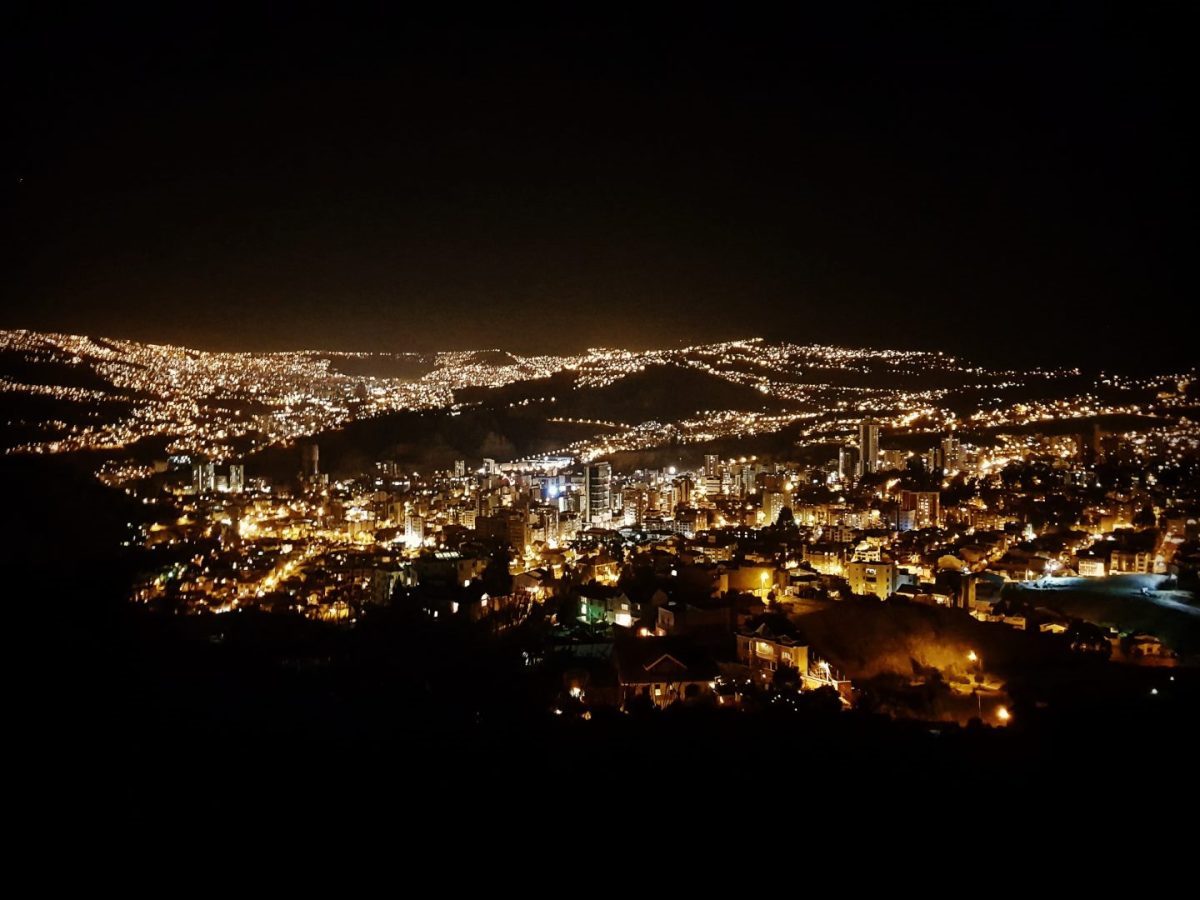
Discover the vibrant nightlife scene of La Paz with the Cultural Pub Crawl Nightlife Tour. This tour takes you on an exciting journey to some of the top bars and pubs in the city, where you can enjoy the best alcoholic beverages and mingle with locals and other travelers.
The tour starts at the meeting point, Jaén 705, where your guide will be waiting for you. From there, you will visit different bars and pubs in the city, sampling some of the local drinks and experiencing the unique Bolivian culture.
At the end of the tour, you will be dropped off at Av.6 de Agosto 2592, in the residential area of the city center. Your guide will be happy to help you catch a taxi or call an Uber if needed.
Please note that this tour is not recommended for pregnant travelers and is not wheelchair accessible. However, most travelers can participate. Confirmation will be received within 48 hours of booking subject to availability, and the tour will have a maximum of 9 travelers.
If you need to cancel your booking, you can do so up to 24 hours in advance of the experience for a full refund. Please keep in mind that any changes made less than 24 hours before the experience’s start time will not be accepted.
Don’t miss out on this amazing opportunity to experience the nightlife of La Paz and immerse yourself in the Bolivian culture.
2. Uyuni Salt Flat Death Road
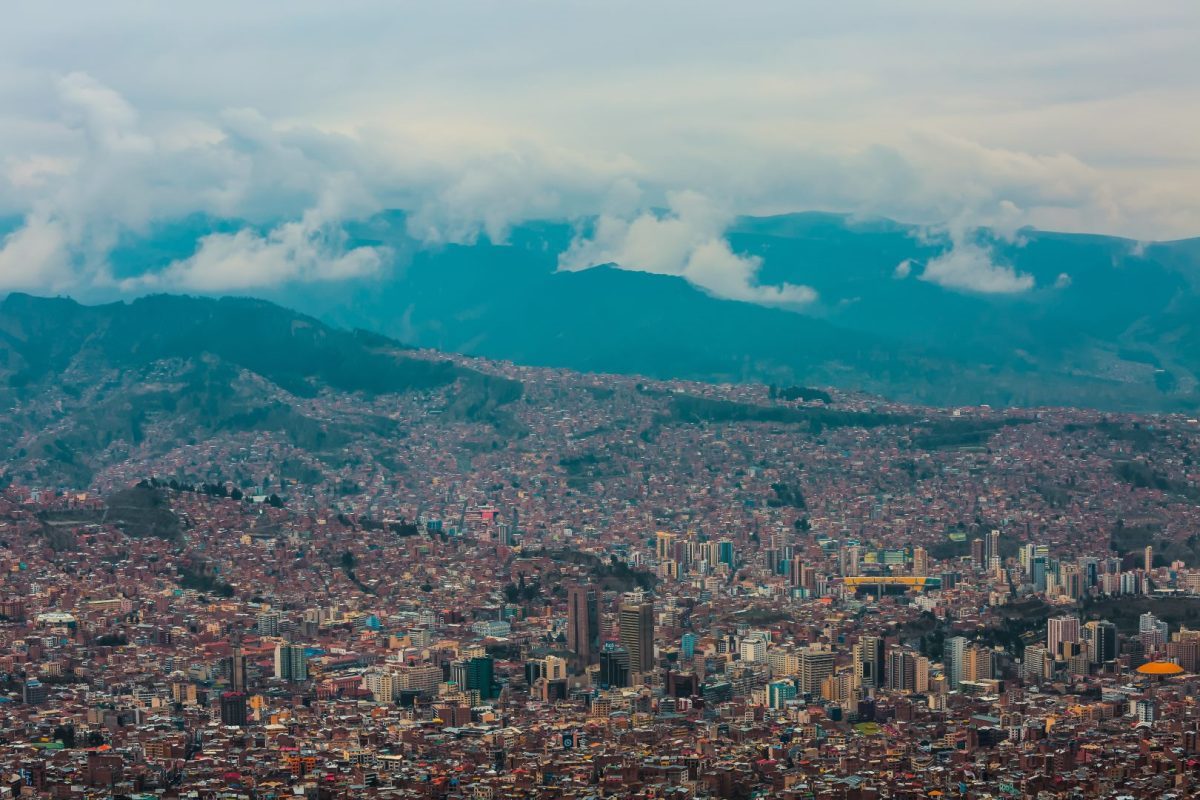
Discover the thrill of the Uyuni Salt Flat Death Road on this full-day tour. Begin with pickup from the Maria Auxiliadora Church meeting point, or request pickup from a location of your choice. Your expert English-speaking guide with years of experience will take you to the Uyuni Salt Flat and the Tuni and Kala deserts. Along the way, see the local wildlife and flamingos. Pass through the Chiguana Salt Flat and visit Isla Incahuasi for an additional entrance fee. After lunch, visit the Eduardo Avaroa Reserve and the Red and Green Lagoons for another entrance fee.
Finally, experience the thrill of the iconic Death Road on a full suspension bike, with helmet, gloves, knee and elbow pads, jacket, and pants included. Entrance fee to Death Road is also included. Personal expenses of approximately Bs. 200 can be expected. The tour finishes on the 5th day and will drop you off at the Terminal de Buses La Paz. Confirm the start time with the local provider in advance of your experience. Come ready to experience the incredible beauty and adventure of Bolivia on this Uyuni Salt Flat Death Road tour.
3. Evening Foodie Tour
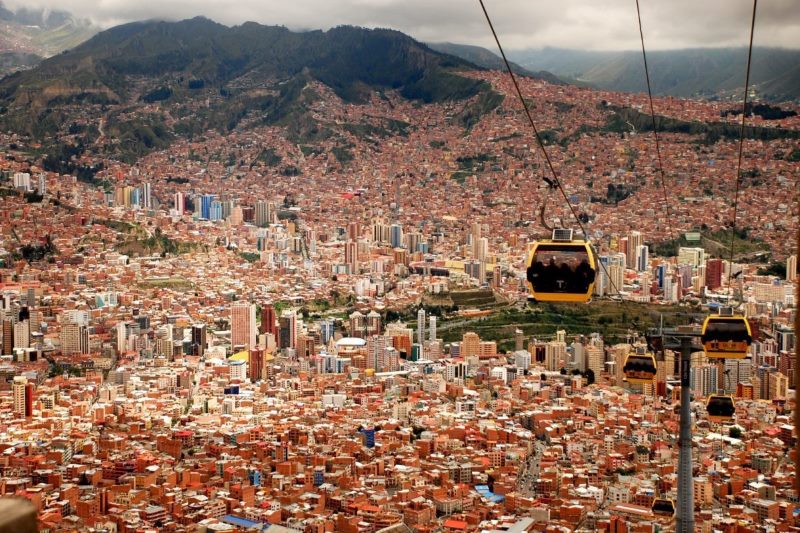
Bolivia may not be well-known for its culinary scene, but that’s about to change with the Evening Foodie Tour. This tour is a perfect way to experience the warmth and heart of Bolivian cuisine. You’ll get to taste six specialty dishes from the best local restaurants and learn about the Bolivian food culture. The tour starts at 6:00 PM and takes you to unique markets, historical monuments, and sights around La Paz. You’ll make your own cocktail, try local beer, and enjoy the company of fellow foodies. The tour ends with a drink and fun conversation at a local spot. All the restaurants have been inspected for cleanliness and proper food handling to ensure a safe and enjoyable experience. Come and discover the flavor of Bolivia!
The Most Frequently Asked Questions About La Paz, Bolivia
La Paz is the administrative and political capital of Bolivia. As the highest capital city in the world, it has become a popular travel destination for those seeking adventure and culture. However, before planning a trip to La Paz, you may have some questions. In this blog post, we will answer some of the most frequently asked questions about La Paz to help you better prepare for your trip.What Is The Best Time To Visit La Paz?
La Paz’s climate is generally consistent throughout the year, with temperatures ranging between 45°F and 65°F, although nights can be very chilly. The dry season, which runs from May to October, is the most popular time to visit due to the clear skies and warm days. During the rainy season, which takes place from November to April, the city can experience heavy rainfall that may affect your travel plans.What Are The Must-See Sights In La Paz?
La Paz is a city rich in culture and history, with many tourist attractions to visit. Some of the must-see sights include:- The Witch Market, where you can find traditional Bolivian remedies and folk art.
- The Plaza Murillo, which is the political heart of the city and home to the Presidential Palace and the National Congress of Bolivia.
- The Valley of the Moon, a unique natural landscape with rock formations that resemble the surface of the moon.
- The Cable Car System, which provides visitors with a panoramic view of the city and the Andes Mountains.
- The San Francisco Church, considered one of the most beautiful examples of colonial architecture in the country.
Is La Paz Safe?
La Paz is generally considered safe for tourists, but like any city, there can be pickpocketing and other minor crimes. It is advisable to take precautions like not carrying large sums of cash, keeping your valuables close to you, and not wandering alone at night in unfamiliar areas. It’s a good idea to take a taxi or use an official transportation service when traveling in the city.What Currency Is Used In La Paz?
The official currency in La Paz is the Bolivian Boliviano. US dollars are widely accepted in larger establishments like hotels and restaurants, but it’s always best to have local currency for smaller purchases. ATMs are widely available in the city, but be aware that many ATMs have daily withdrawal limits that may be lower than what you are used to in your home country.What Is The Local Food Like?
Bolivian cuisine is a mix of indigenous and Spanish influences, with dishes like salteñas (a type of empanada filled with meat and vegetables), chairo (a soup made with potatoes, chuño, and beef), and traditional Andean dishes like cuy (guinea pig) and alpaca meat. If you’re feeling adventurous, be sure to try these local delicacies during your stay in La Paz.Do I Need To Speak Spanish To Get Around La Paz?
While Spanish is the official language in Bolivia, English is spoken in larger establishments like hotels and restaurants. However, outside of these establishments, it’s common to encounter people who don’t speak English, so it’s a good idea to bring a phrasebook or brush up on your basic Spanish phrases before your trip.What Should I Wear In La Paz?
La Paz’s high altitude makes it important to dress in layers to keep warm, especially in the evening. Be sure to pack warm clothing like a jacket, hat, and gloves, as well as comfortable shoes suitable for walking on uneven terrain. If you’re planning to visit a religious site, it’s best to dress conservatively and cover your knees and shoulders out of respect for local customs.What Is The Best Way To Get Around La Paz?
La Paz has a well-established public transportation system that includes buses and minibusses, known as micros. Taxis are also readily available and can be hailed on the street or through an app. However, if you want to explore the city at your own pace, we recommend renting a bicycle or joining a bike tour to explore the city’s sights.Final Thoughts
La Paz is a city rich in culture and history, with many tourist attractions to visit. By being aware of some of the most frequently asked questions, you can better prepare for your trip and have an enjoyable and safe visit. Whether you’re exploring the city’s markets, enjoying its cuisine, or taking in its natural beauty, La Paz is sure to leave a lasting impression on all who visit.La Paz, the administrative capital of Bolivia, is a city unlike any other. With its breathtaking views of the Andes Mountains and its unique mix of indigenous and Spanish cultures, La Paz offers plenty of attractions and activities for visitors to enjoy. Whether you’re interested in exploring its rich history, experiencing the local cuisine, or taking part in adrenaline-pumping adventures, La Paz has something for everyone. In this post, we’ll explore the best attractions and things to do in La Paz, so grab your hiking boots, camera, and adventurous spirit – it’s time to discover this amazing city!
The 3 Best Tourist Attractions in La Paz
The 3 Best Tourist Attractions in La Paz
1. Cultural Pub Crawl Nightlife Tour
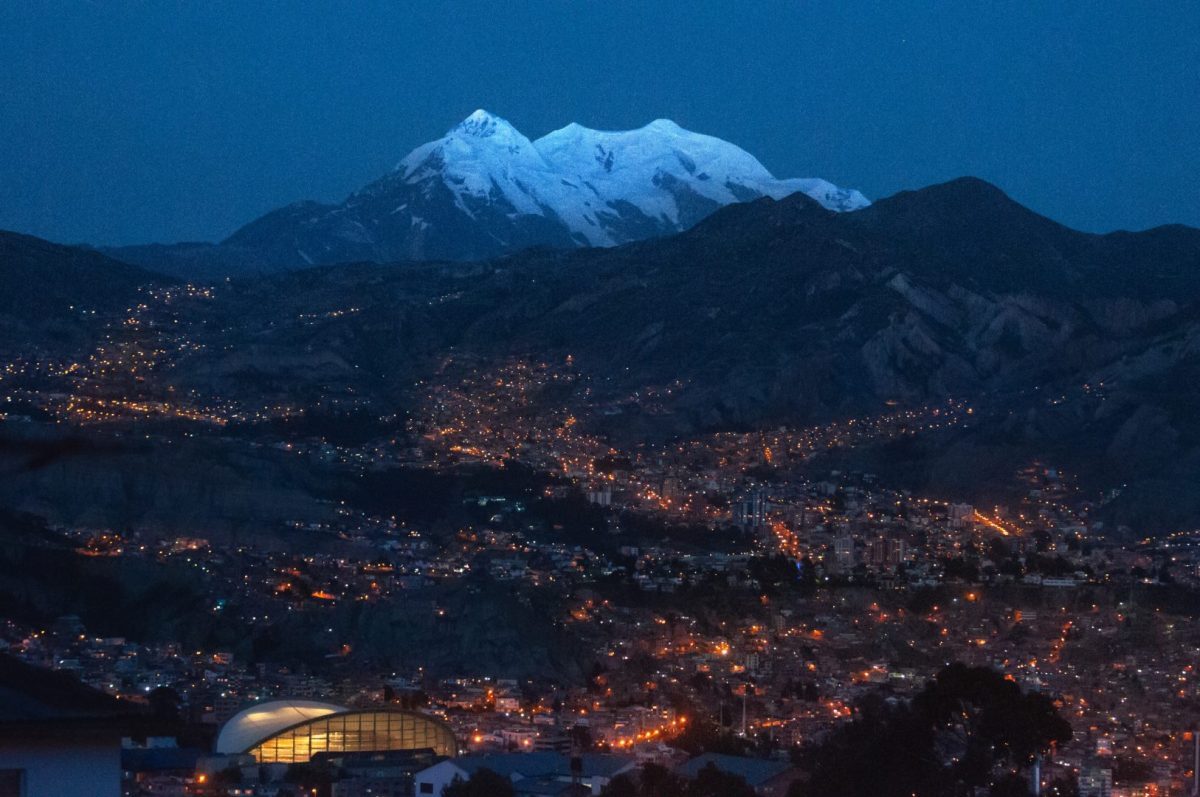
La Paz is known for its vibrant nightlife, and the Cultural Pub Crawl Nightlife Tour is a fantastic way to explore the city’s bar scene while learning about its rich culture.
The tour includes alcoholic beverages and begins at the Meeting Point, located at Jaén 705 in La Paz, Bolivia. From there, we’ll venture into the residential area of the city center and visit local pubs and bars.
Our knowledgeable and friendly guide will share insights on the city’s history, culture, and nightlife scene throughout the tour.
Please note that this tour is not wheelchair accessible and is not recommended for pregnant travelers. Confirmation will be received within 48 hours of booking subject to availability. Most travelers can participate, and this tour/activity will have a maximum of 9 travelers.
If you need to cancel your booking, you can do so up to 24 hours in advance of the experience’s start time for a full refund. However, if you cancel less than 24 hours before the experience’s start time or make changes within that timeframe, you won’t receive a refund.
Overall, the Cultural Pub Crawl Nightlife Tour is an exceptional way to experience La Paz’s vibrant nightlife and learn more about its culture.
2. Uyuni Salt Flat Death Road
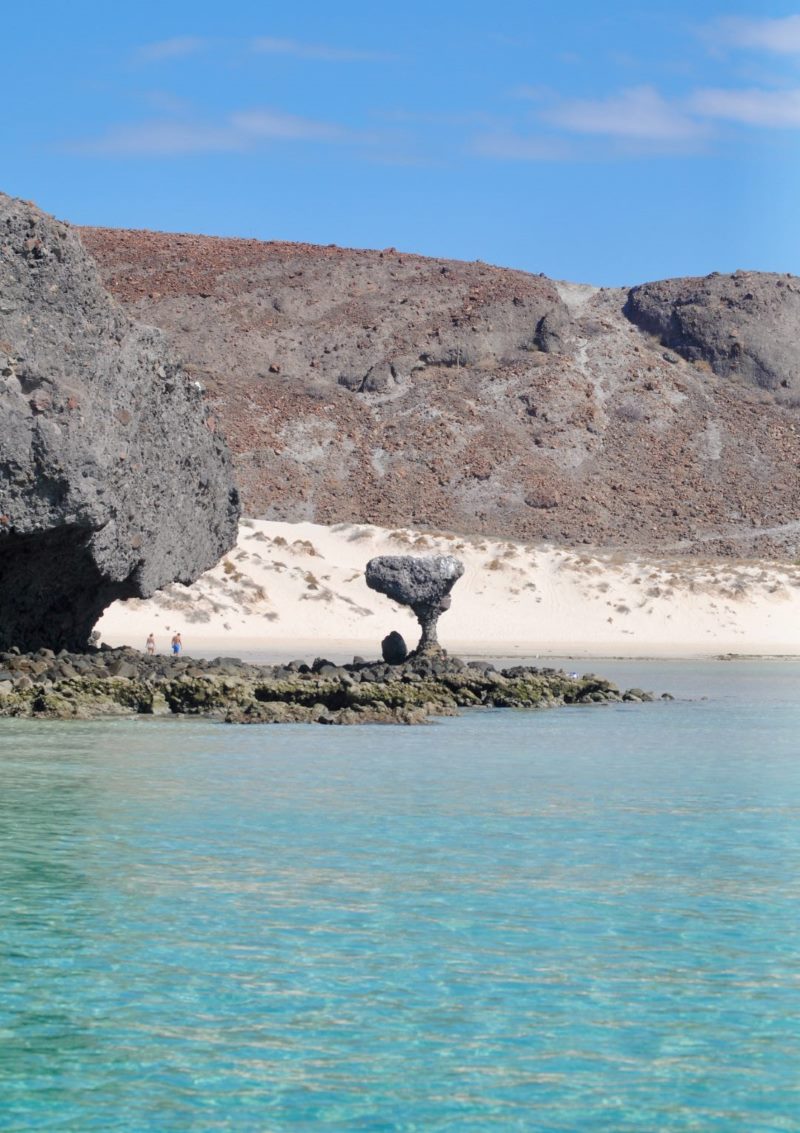
Explore the Uyuni Salt Flat and conquer the thrilling Death Road with this action-packed tour. The adventure starts early in the morning with a meeting point at the Maria Auxiliadora Church in La Paz. Pickup from your hotel is also available upon request. From there, you’ll head to the Salt Flat where you’ll marvel at the vast expanse of white salt contrasted against the clear blue sky.
Next, get ready for the adrenaline rush as you make your way down the infamous Death Road by bike. Your experienced English-speaking guide will provide you with all the necessary equipment, including full suspension bikes, helmet, gloves, knee and elbow pads, jacket, and pants. As you make your way down the winding path, take in the stunning views of the surrounding mountains and valleys.
This tour includes entrance fees to Isla Incahuasi and Reserva Eduardo Avaroa, as well as the Bs. 50 fee for Death Road. Personal expenses are estimated to be around Bs. 200. The tour ends on the 5th day at the La Paz Bus Terminal.
Don’t miss out on this unforgettable adventure on the Uyuni Salt Flat and Death Road. Confirm the start time with the local provider in advance, and get ready for an experience of a lifetime.
3. Evening Foodie Tour
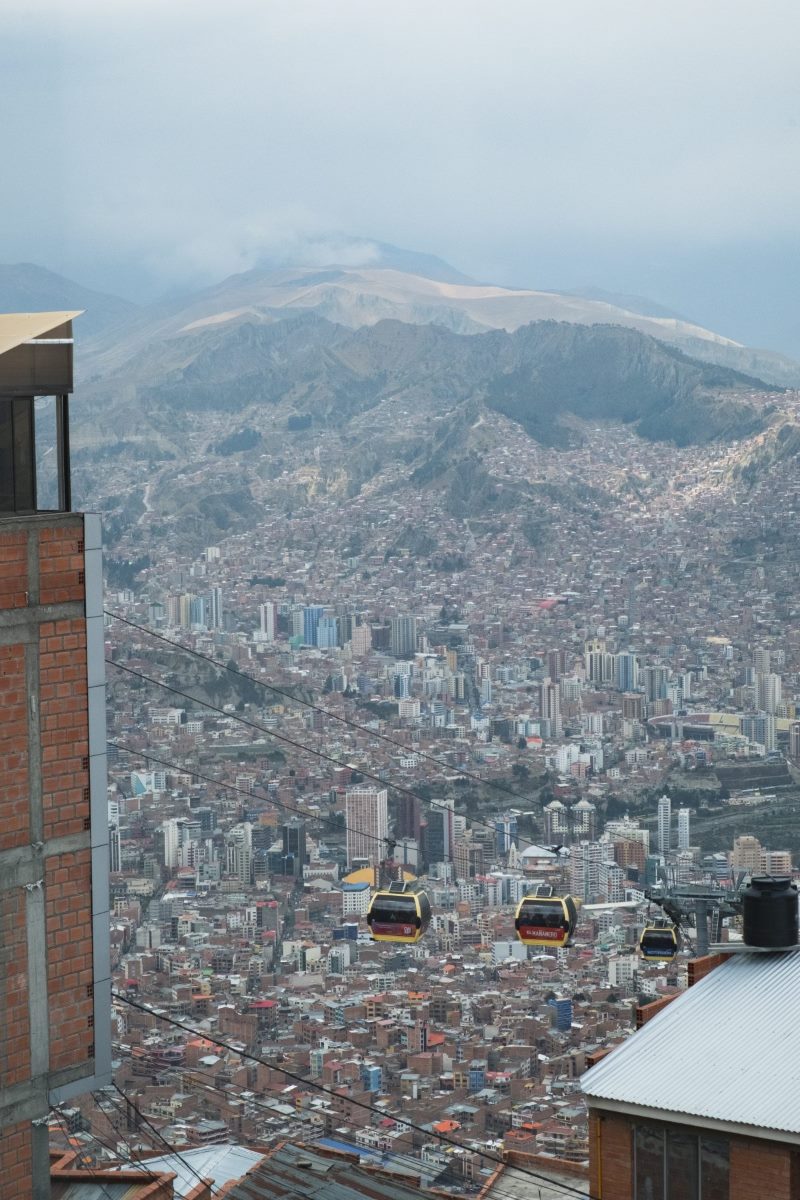
Experience the best of Bolivian cuisine with our Evening Foodie Tour in La Paz. This tour is perfect for those who want to immerse themselves in the local food culture of Bolivia. The tour highlights include making your own cocktail and trying a local beer, tasting six specialty dishes, and visiting a local market to try market foods.
Bolivia may not be known for its culinary delicacies, but this tour will change your perception. You will learn not only about the best Bolivian cuisine but also the stories behind the people who make it. The food is heartwarming, hearty, and shared with loved ones.
The tour starts at 18:00 PM from the best local restaurants in La Paz, which have been inspected for cleanliness and proper food handling. As you enjoy your meal, you will also pass by La Paz’s many unique markets, historical monuments, and sights. We will end the tour with a drink and some fun conversation at one of the local restaurants.
Join us on our Evening Foodie Tour and experience the best of Bolivian cuisine and culture.
The Most Frequently Asked Questions About La Paz Answered
La Paz is the administrative capital of Bolivia, and it has a lot to offer visitors looking to explore South America. As with any new destination, visitors are likely to have a lot of questions before they arrive. In this blog post, we’ll answer some of the most frequently asked questions about La Paz to help you plan your trip better.1. When is the best time of year to visit La Paz?
The best time of year to visit La Paz is from May to October when the weather is dry and sunny. The rainy season runs from November to April, and although the city is still worth visiting during this time, you’ll need to be prepared for heavy rainfall.2. Is La Paz safe for tourists?
La Paz is considered a relatively safe city for tourists, but it’s important to take precautions like not flashing expensive items, avoiding unlit areas at night, and being aware of your surroundings. It’s also a good idea to take official taxis and avoid using public transportation at night.3. What is the altitude of La Paz, and will I experience altitude sickness?
La Paz is located at an altitude of 3,640 meters (11,942 feet), which is higher than most cities in the world. Altitude sickness is a possibility, but you can reduce the risk by staying hydrated, avoiding alcohol and caffeine, and taking it easy for the first few days to acclimate to the altitude. If you’re concerned about altitude sickness, you should consult your doctor before your trip.4. What are some must-see attractions in La Paz?
There are plenty of interesting things to see and do in La Paz, but some of the top attractions include:- The Witches’ Market: a fascinating and somewhat eerie collection of shops selling traditional medicines and magical potions.
- The Cable Car: a cheap and scenic way to get around the city, with stunning views of the surrounding mountains.
- The Valle de la Luna: an otherworldly landscape of eroded rock formations that looks like something out of a science fiction movie.
- The La Paz Museum of Ethnography and Folklore: a comprehensive collection of Bolivian artifacts and cultural exhibits.
5. What should I know about the local culture in La Paz?
Bolivia is a diverse country with many different cultures and traditions, and La Paz is no exception. Some things to keep in mind when visiting include:- The official languages are Spanish and Quechua, although many people in La Paz also speak Aymara.
- The local cuisine includes dishes like salteñas (a type of savory pastry) and chuño (a freeze-dried potato).
- Bolivians are generally friendly and welcoming, but it’s important to respect local customs and traditions.
6. How do I get around La Paz?
The best way to get around La Paz is by foot or by using the cable car system. Taxis are also readily available, but make sure to agree on a fare before you get in, as they don’t use meters. Public transportation is an option, but it can be crowded and confusing for visitors.7. Do I need a visa to visit La Paz?
Visitors from many countries, including the US and most of Europe, do not need a visa to enter Bolivia as tourists. However, you will need a valid passport and may be required to show proof of onward travel and/or yellow fever vaccination.8. What should I pack for a trip to La Paz?
When packing for La Paz, it’s important to remember that the weather can be unpredictable, so you’ll need to bring clothing for both warm and cold conditions. It’s also a good idea to bring comfortable walking shoes, a hat, sunscreen, and insect repellent.9. What are some day trips I can take from La Paz?
There are several interesting day trips you can take from La Paz, including:- The Tiwanaku Archeological Site: a UNESCO World Heritage Site that features the ancient ruins of a pre-Columbian civilization.
- The Lake Titicaca: a massive lake located on the border between Bolivia and Peru, known for its clear blue waters and floating islands.
- The Chacaltaya Ski Resort: a former ski resort that sits at an altitude of 5,421 meters (17,785 feet) and offers stunning panoramic views.
10. What is the local currency in La Paz, and where can I exchange money?
The local currency in La Paz is the Bolivian boliviano (BOB). You can exchange money at banks, exchange offices, or some hotels. It’s also possible to withdraw money from ATMs, but it’s a good idea to notify your bank before you travel to avoid any issues with your card.Final Thoughts
La Paz is a fascinating city with a lot to offer visitors who are willing to explore. By answering some of the most frequently asked questions about La Paz, we hope we’ve helped you plan your trip better and feel more confident about what to expect when you arrive. Whether you’re interested in history, culture, or outdoor adventures, La Paz has something to offer everyone.Table of Contents
